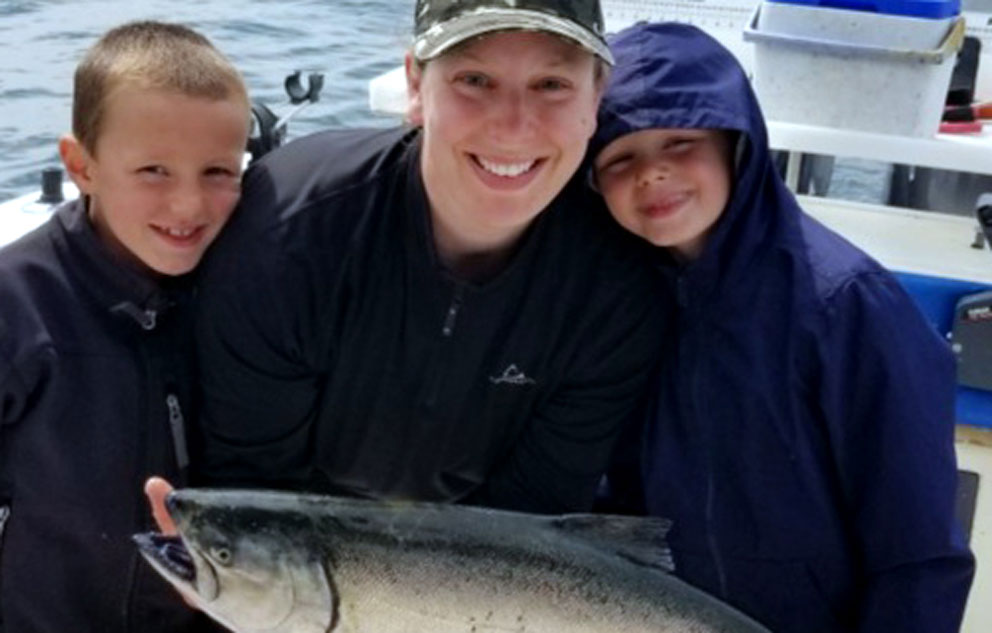More than medicine: the heart of rural family practice

Dr. Rebecca Janssen
Why I became a rural doctor
My father was a rural doctor—the old-fashioned kind, the kind that did it all. I thought he was a hero. One of my earliest memories is of being a little kid in the car with my dad, who was the only doctor in town. He got called to the hospital, so my brother and I went along for the ride. I remember watching a helicopter land as he loaded a patient inside, thinking, Wow, helicopters come because my dad says so. Even then, I knew what he did mattered.
I’ve always loved small-town life. I like farming, fishing, berry picking—everything I do happens in rural spaces. It made sense to build a career in a place where I feel at home. Plus, rural medicine is exciting. Our scope is broad. We do so much. Compared to the family medicine I saw in urban settings, rural practice is dynamic, challenging, and deeply rewarding.
The challenges of rural healthcare
It’s no secret that rural medicine means doing more with less. We work in resource-poor environments, and that hasn’t improved over the years. We don’t have CT access in Vanderhoof, and we don’t have neurosurgery or interventional cardiology in the North. Our patients travel hours for those services. That means health outcomes look different in rural communities.
COVID made things worse. The human resource crisis hit hard, and we’re constantly trying to keep things running with fewer and fewer people. Watching colleagues burn out is tough. Shutting down the emergency department is devastating. And in a small town, it’s personal. If someone I know—someone’s grandmother, someone’s child—has to go to Prince George for care because we couldn’t stay open, that’s morally distressing. And in a town like mine, you always know.
Why I keep going
Despite the challenges, I love what I do. My patients are why I stay. In Vanderhoof, people recognize how hard their doctors work. There’s pride in knowing you’re serving your community well. And honestly? The job is fun. No two days are the same. One day, I’m reducing a fracture. The next, I’m delivering a baby. The next, I’m treating an MI (heart attack). It keeps me on my toes.
And then there are the moments that remind me exactly why I do this. I’ve had patients look me in the eye and say, “You saved my life.” That’s an incredible thing to hear. And because it’s a small town, I see them all the time. They recognize me. They remember. That kind of connection is rare in medicine.
Lessons from rural practice
One of the biggest lessons I’ve learned is that my job isn’t to control people’s choices. It’s to give them the information they need to make decisions about their own health. That was especially hard during COVID, when I desperately wanted people to make what I saw as the right choice. But ultimately, people will do what feels right to them. And that’s their right.
I’ve also learned to manage my own emotional investment. When you’re this close to your patients, it’s easy to take their struggles personally. But you can’t carry it all. You have to draw a line somewhere. Otherwise, you burn out, too.
What needs to change
Medicine is shifting fast. My dad’s generation practiced differently than mine, and if my kids go into medicine, their experience will be different again. We’re using technology more, and that’s a good thing—but we can’t lose human connection along the way.
AI is coming, and while I see the benefits, we need to be mindful about how we integrate it. And then there’s the shift toward team-based care, where doctors can become more like supervisors than primary caregivers. I understand the logic, but I didn’t go to medical school to just oversee a team. I want to see my patients. I want that connection to stay at the heart of my work.
More than just a job
I sometimes joke that doctors in my town are dinosaurs. We own our own clinic. We provide full-scope family medicine. We do things the old-school way. But I worry that model is disappearing.
For me, medicine has never been just a job. It’s a calling. If I were only in this for the money, I would’ve walked away a long time ago. What keeps me here is the connection to my patients, my community, and the work itself. That’s what makes all the hard parts bearable. And there are plenty of hard parts. But there are also the moments that make it all worth it. And that’s why I’m still here.
Dr. Rebecca Janssen is the Chief of Staff at St. John Hospital in Vanderhoof and the managing physician of Omineca Medical Clinic